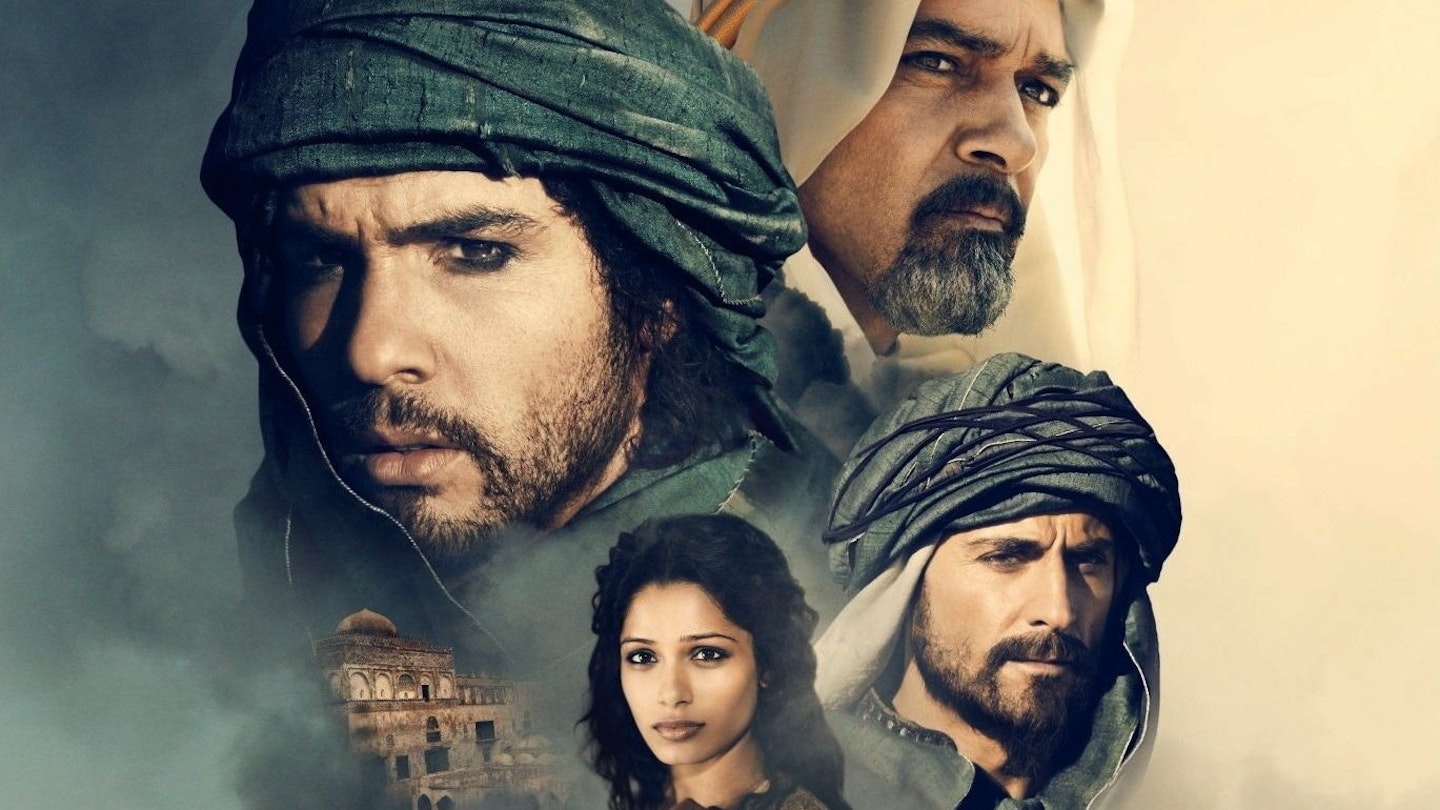Those of us who know little about the Arab peninsula early in the 20th century — except what we learned in Lawrence Of Arabia — will be intrigued by a desert epic in which Lawrence, King Faisal, Britain, France and the Turks are not mentioned at all. Elsewhere, it would seem, other, Bedouin tribes had their own stuff going on in emerging Arab states.
A novel called South Of The Heart by Hans Ruesch became a 30-year obsession for the man who would eventually turn it into a film, media mogul Tarak Ben Ammar (Life Of Brian, Hannibal Rising). It’s clearly a labour of much love and quite a lot of money, not least from Qatar, where much of it was shot.
The story is largely set in the ’30s at the birth of the Arabian oil boom. Auda (A Prophet’s Tahar Rahim), younger son of Mark Strong’s sultan, has grown up meek, bespectacled and scholarly but has won the heart of Emir Nesib’s spirited daughter, Princess Leyla (Freida Pinto). She has little to do but gaze limpidly through heavily kohled eyes from behind latticed windows, but comes in handy when the emir marries her to the conflicted Auda, resulting in sex scenes that could well be banned in Islamic parts.
Nesib (Antonio Banderas) represents the modern, progressive type, using sudden vast wealth to build schools and hospitals, although he appears just as keen on limos and bling. Sultan Amar is devoutly conservative, his outrage at the plundering in the disputed tract to do with his mistrust of the Western agenda and equating poverty with piety. Auda is torn between the two father figures, but finds himself turning into a warrior and leader of rival peoples.
All this no doubt sounded grand in conception, but the execution approaches unintentionally funny with a tritely clichéd script (by committee, apparently) spouted by a cast too international for its own good, British and Spanish accents and styles contrasting absurdly with some mightily inept if authentically Arab thespians.
Making the brightest impression is Riz Ahmed as Auda’s disregarded, embittered half-brother. Things perk up a bit when war breaks out and Auda, to universal amazement, unites feisty enemies through an epic desert ordeal (very Lawrence, this), beautifully captured by cinematographer Jean-Marie Dreujou. But by this point it’s just too little, too late.
